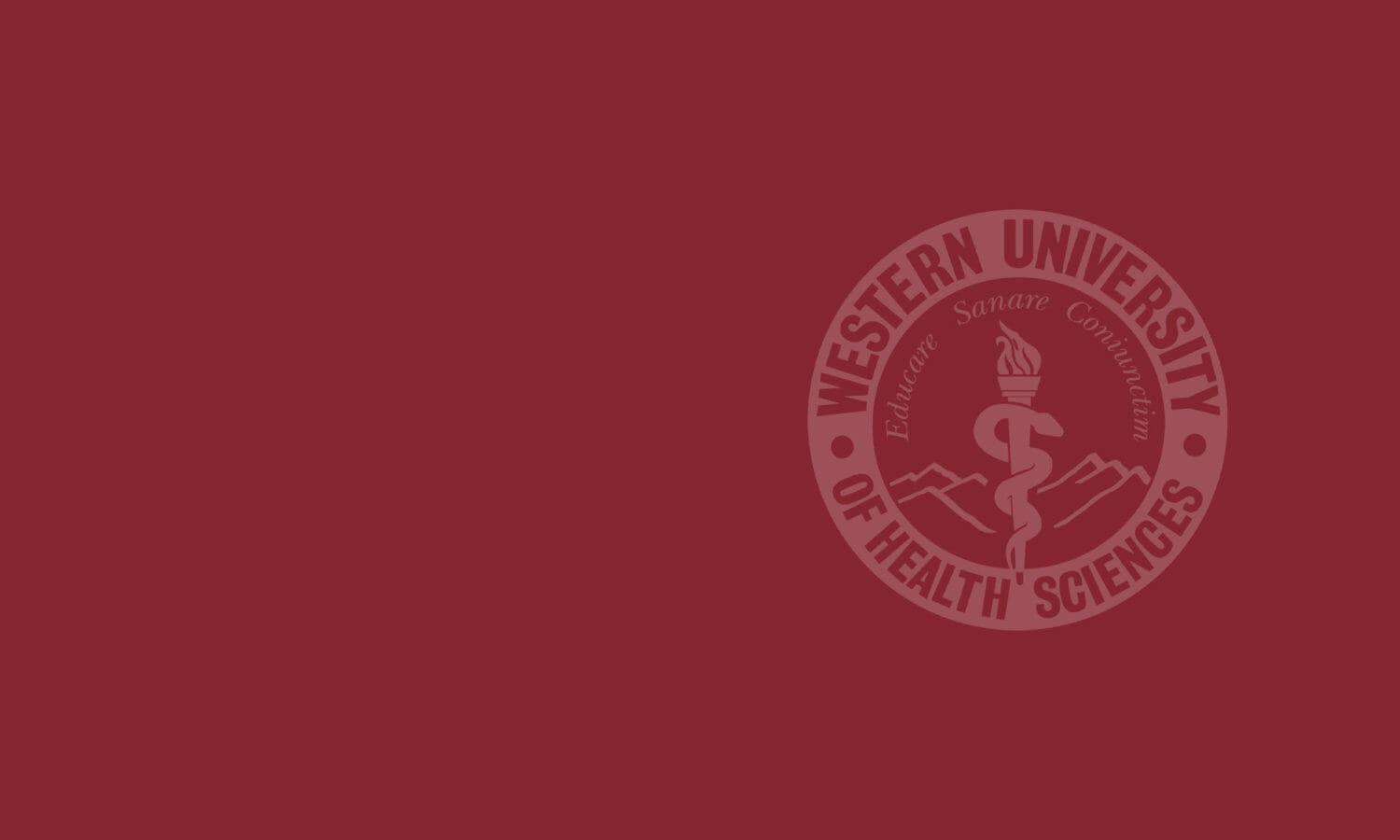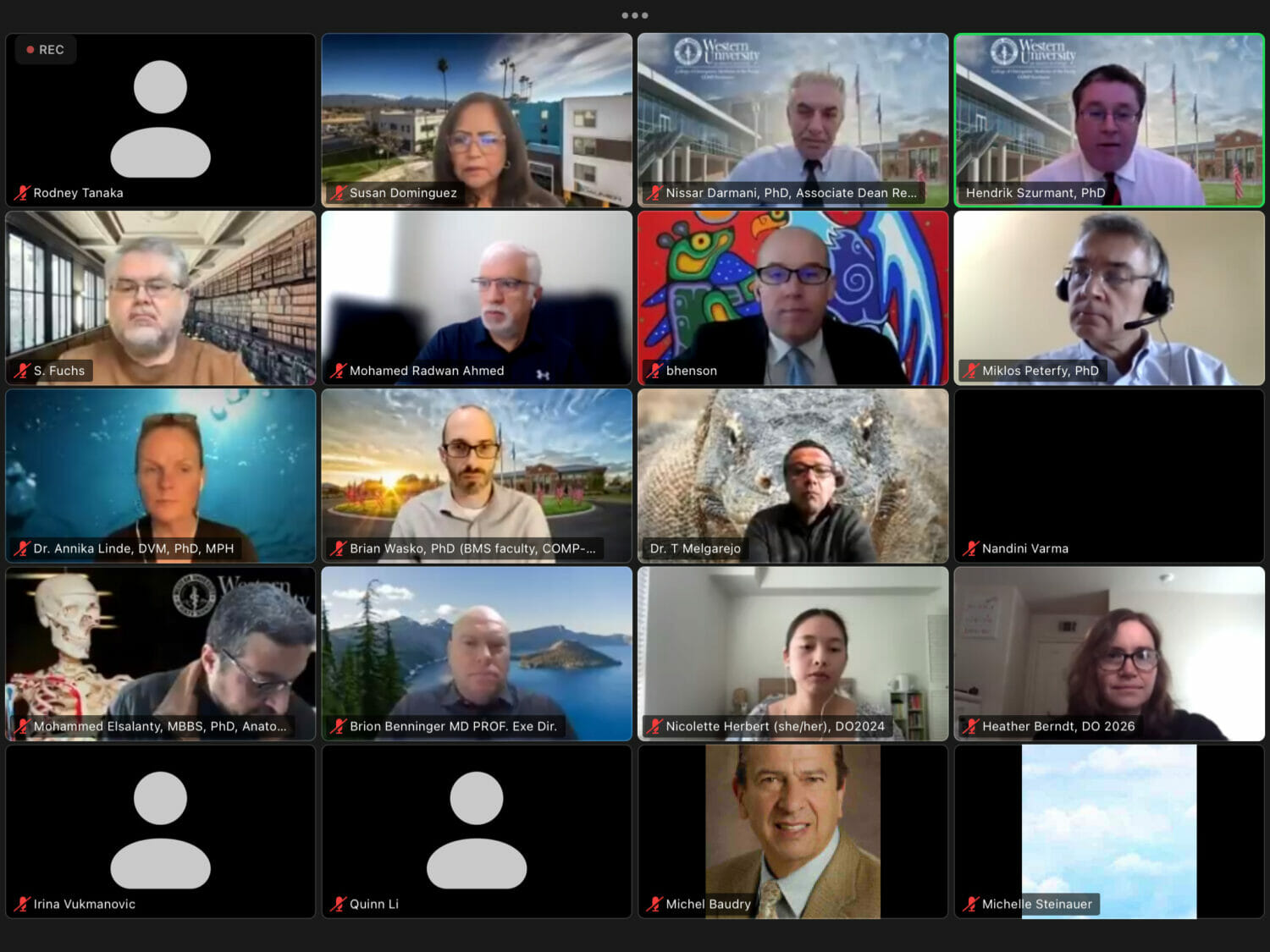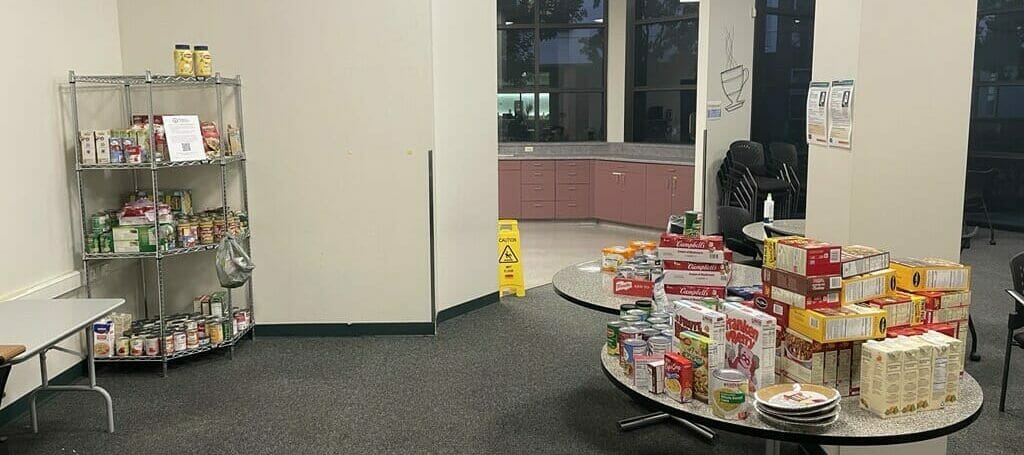Life after medical school
Medical students may only look ahead four years to graduation. College of Osteopathic Medicine of the Pacific alumna NaNotchka M. Chumley, DO ’93, MPH, wants them to look 15 to 20 years ahead at their career.
Medical schools do not always emphasize the idea that medicine is a business, Chumley said. But students should be aware that finding a permanent job or going into private practice is difficult.
“I’m trying to give them a 15-year glimpse,” she said. “Before you finish medical school, you need to know about your residency and career path. You cannot wait until you’re in the midst of it.”
Chumley returned to campus on Tuesday, Feb. 26 to talk about “Life after Medical School: Residency and Beyond," part of WesternU’s celebration of Black History Month. The noon discussion in the HPC North conference room was sponsored by the Student National Medical Association.
Chumley specializes in family medicine and serves as chief physician for Crenshaw Community Health Center in Los Angeles. But family medicine wasn’t her first choice.
From the time she was 5 years old, she wanted to be a pediatrician. But her first pediatric rotation made her realize she did not want to work with children exclusively. She also had interests in psychiatry and obstetrics. Family medicine allows her to explore all three of her areas of interest, and she recommends students explore their own areas of interest during their clinical rotations.
Chumley stays in contact with the university and the campus about twice a year.
“I think it’s important to come back,” she said. “When I was there, there was always somebody who came back to speak to us, so I’m doing my part.”
Her involvement is appreciated. Talking with alumni helps students get a sense of what it is like to practice medicine, said Ann Kellogg, DO ’10, president of SNMA, who also wants to enter family medicine.
“I like the diversity in practice,” Kellogg said. “For me it’s also a moral issue. I’m compelled to go where the greatest need is. Primary care leads to more affordable care and improves access.”
Chumley has spoken at previous WesternU Black History Month events.
“It’s important that we recognize just in general all the contributions people of color have made to the world, but definitely to medicine,” she said. “Most important is to know where the origins of medicine came from. If you don’t know history, in particular African American or black history, then I think you’re missing a big part of medicine.”



